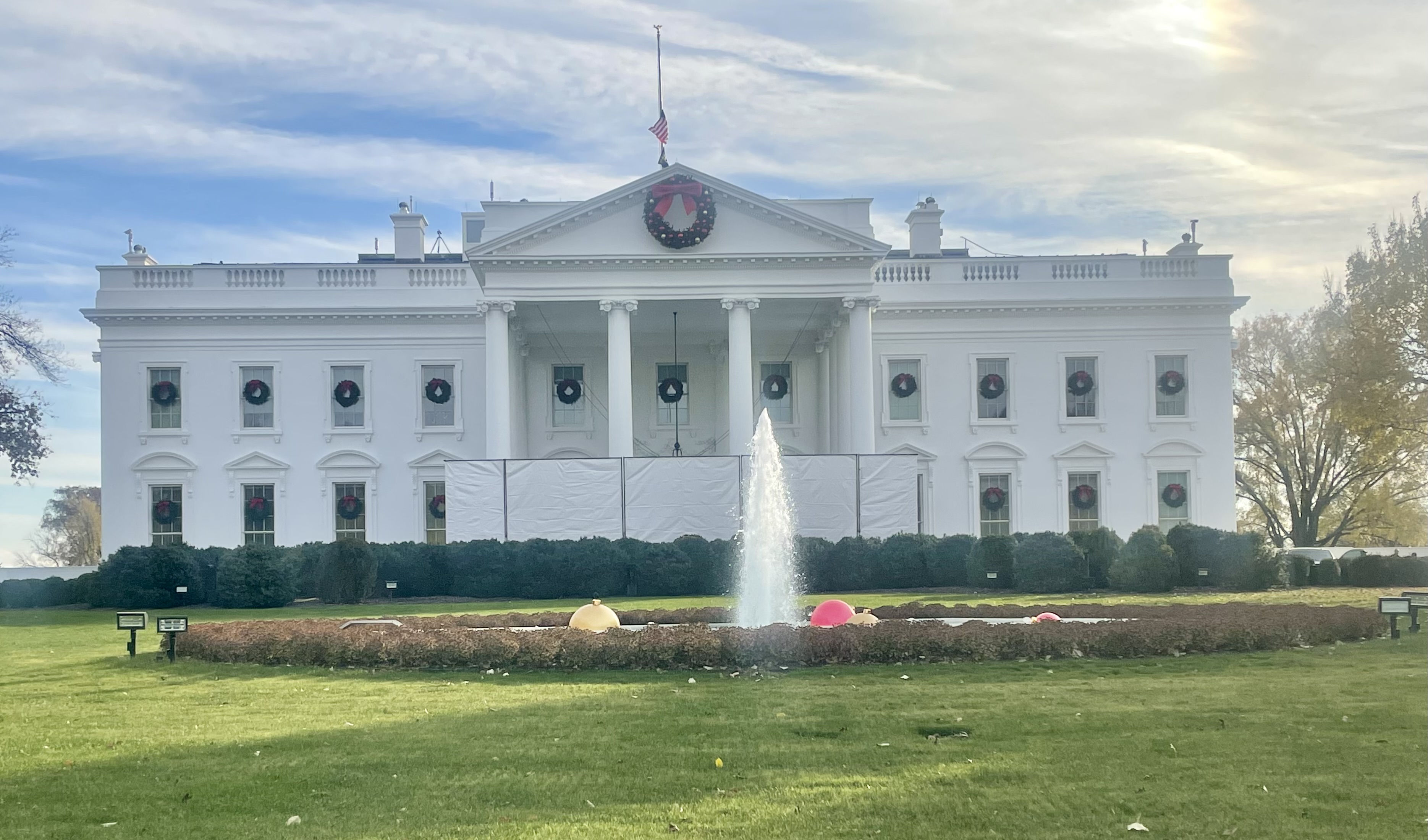
- Details
- By Levi Rickert
WASHINGTON — Hundreds of tribal leaders are in Washington, D.C. to attend the White House Tribal Nations Summit that will be held at the U.S. Department of the Interior on Wednesday and Thursday.
The summit is the second summit held by the Biden administration and the first in six years held in person. Last year’s summit was held virtually due to the COVID-19 pandemic. The Trump administration did not host tribal gatherings that were held for eight consecutive years during the Obama administration.
Dozens of tribal leaders from throughout Indian Country attended a pre-summit preparation meeting at the Capitol Hilton on Tuesday to discuss issues important to the progress of tribes.. The meeting was hosted by the National Congress of American Indians (NCAI) and the National Indian Health Board, among other national Native American organizations. The meeting was closed to the media.
However, Stacy A. Bohlen, chief executive officer of the National Indian Health Board, spoke to Native News Online before the meeting. She expressed her desire to see more appropriations for health care for Native Americans.
“I expect that the administration will advance the promises that they've already made to Indian Country. This President has done things no president has done for American Indian and Alaskan Natives when it comes to health. He's fully supported advanced appropriations for the Indian Health Service. He's fully supported. Mandatory funding for the Indian Health Service and full funding for the Indian Health Service,” Bohlen said.
“So I expect to leave here on Thursday with some big news. I'm expecting to leave here with more dollars for the tribes for COVID vaccinations, and I'm expecting to leave here with a more public splash about advanced appropriations because we've got to get it done right now<” Bohlen added.
For Phyliss Davis, a tribal council member for the Match-E-Be-Nash-She-Wish Band of Pottawatomi Indians of Michigan (Gun Lake Tribe) said she is excited about attending the summit because the administration is sending top level federal officials to hear the concerns of Indian Country, such climate change and housing needs.
“I would like to hear about advanced appropriations of the underfunding of equity issues within the Housing and Urban Development (HUD),” Davis said.
Richard Peterson, president of the Tlingit and Haida Indian Tribes of Alaska, says the Biden administration has already done a lot for Indian Country.
The Tlingit and Haida Tribes, which is the largest tribe in Alaska with over 35,000, recently had land put into trust by the U.S. Department of the Interior.
“We’re here to hear more from the Interior Department on their plans for bringing parity through Alaska tribes with the tribes in the lower 48 states.” Peterson said.
More Stories Like This
Native News Weekly (August 25, 2024): D.C. BriefsDeb Haaland Earns Endorsement From Communications Workers of America Local 7076
University Soccer Standout Leads by Example
Two Native Americans Named to Democratic Congressional Campaign Committee's“Red to Blue” Program
Cheyenne River Youth Project Hosts Young Women’s Winter Camp as Part of Lakota Culture Internship
Help us defend tribal sovereignty.
At Native News Online, our mission is rooted in telling the stories that strengthen sovereignty and uplift Indigenous voices — not just at year’s end, but every single day.
Because of your generosity last year, we were able to keep our reporters on the ground in tribal communities, at national gatherings and in the halls of Congress — covering the issues that matter most to Indian Country: sovereignty, culture, education, health and economic opportunity.
That support sustained us through a tough year in 2025. Now, as we look to the year ahead, we need your help right now to ensure warrior journalism remains strong — reporting that defends tribal sovereignty, amplifies Native truth, and holds power accountable.
 The stakes couldn't be higher. Your support keeps Native voices heard, Native stories told and Native sovereignty defended.
The stakes couldn't be higher. Your support keeps Native voices heard, Native stories told and Native sovereignty defended.
Stand with Warrior Journalism today.
Levi Rickert (Potawatomi), Editor & Publisher


